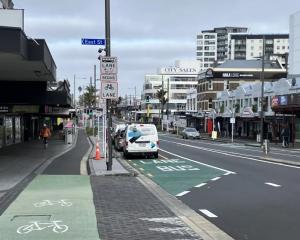District health boards seem destined for a swathe of union negotiations after nine of the 10 unions involved in this year's combined negotiations rejected their offer.
Nurses, cooks and cleaners were among the workers covered by the proposals, which had been put to union members last month.
The rejection by most members comes at a time when a variety of other DHB workers have yet to reach agreement, including the senior doctors.
Sonographers and radiographers enter negotiations this month.
Junior doctors reached agreement earlier this year and their agreement expires next March.
The Public Service Association appears to be the only union to accept last month's multi-union negotiated offer, but had no comment yesterday.
The rejection of the deal by others means the individual unions, including the largest one involved, the New Zealand Nurses Organisation (NZNO), with about 25,000 members, will go back to the bargaining table.
Other major unions involved are the Service and Food Workers Union (SWFU) and the Engineering Printing and Manufacturing Union.
While there were aspects of the offer particular to specific unions, the sticking point for the rejecting unions appears to be the proposal for a 2% lump sum payment this year, with a 2.5% increase in a year's time.
They argue the lump sum, a minimum of $750, is undesirable for not lifting base rates.
NZNO industrial adviser for the DHB sector Lesley Harry said the union was also keen to see strengthening of safe staffing proposals, recognition for enrolled nurses' increased competency and paid professional development for senior nurses.
The union was hopeful the new process could explore these areas more thoroughly.
"We will be entering the bargaining process in good faith with an open mind and we hope the DHBs will be also." She hoped bargaining dates could be set next week.
SWFU national secretary John Ryall said the offer had been rejected by about two-thirds of members who voted.
The union has about 3000 members in public hospitals, half of them employed by contractors under agreements mirroring those in the DHBs.
A one-off payment of $750 could sound attractive to a low-paid worker, but did not boost hourly rates. If that $750 had been translated into a percentage on the base rate, it might have been more acceptable.
Mr Ryall did not believe the gap between the parties was enormous, "but I do think it needs fixing", he said.
District Health Boards Shared Services said it was waiting to hear reasons for the rejection from the unions and did not wish to say more at this stage.
The lead advocate for the unions in the joint process, Glenda Alexander, could not be reached for comment.












